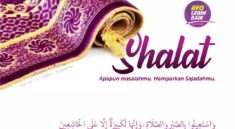There is a discussion that is no less important related to the fiqh of debt receivables. A discussion that is often a big question in some of a person’s mind. May not Anyway Actually receive more payments than the debtor? Isn’t that a laptop …? Can you take advantage of debt?
Moreover there are rules that mention that,
Every loan has been made with usury, namely God
“Every debt of receivables that bring benefits, then that is usury.”
Are every benefit to debt accounts receivable usury? Departing from this question, this discussion becomes important to discuss.
Debt that brings benefits
The point is, the situation when the owner pays more than the debt. A simple picture: If A owes B to Rp500,000. Then when payment, A exaggerated to Rp600,000. So, in this case there are two conditions:
First Condition: The addition or benefits provided have been needed from the beginning of the contract between the two parties
Namely, when the beginning of the contract both parties agreed to pay more than the nominal debt of receivables. Whatever the term is used, whether it is mentioned openly usury, or mentioned by administrative costs, services, process costs, interest, profit sharing, or called the use of Arabic Musyarakah And Mudharabahand also late fines.
All of this is only a name. The fact is still a laptop, as call (Kosclase) seems to be a legitimate thing, so the accompanying benefits are legal. Know! I want to be wrapped as beautiful as anything, wrapped in good names, then the haram is still haram!
Allah Story has clearly mentioned in the Qur’an,
Those who eat God, do not stand up, and what Satan hides God, and God bless sales and forbid God
“People who eat (transact with) usury cannot stand, except like those who stand stagger because of the possession of the devil. Thus it happens because they say that buying and selling is the same as usury. In fact, God has justified the sale and purchase and forbid usury.” (Surah Al-Baqarah: 275)
In the rule of fiqh mentioned,
Crossing with truth and meaning, not fullness and building
“What is rejected (in the agreement) is a fact and its meaning (indeed), not from words and forms of words.”
So that whatever its name, if it has been required at the beginning of the contract, there will be additional when returning, then this is usury. In this case the scholars ijma ‘ (agreed).
And in this case there are some examples:
Like someone wants to give debt but on condition,
- The owner allows the debt giver to stay in his home.
- The owner wants to sell the valuables he has to the debt giver.
- The owner wants to work for the debt giver.
- The owner wants to give the vehicle rent to the debt giver.
In essence, the conditions in the form of benefits, not only the nominal additional in debt. However, things that are in the form of benefits can be included in the category of usury.
In the hadith issued by Al-Imam Abu Dawud, atSAHIKH AL-ALBANI RahimahullahFrom Abdullah bin ‘Amr he said, the Prophet sallallaahu ‘alaihi wa sallam say,
No predecessor and sales, or conditions in sales
“It is not halal to combine debt transactions with a sale and purchase transaction, there should be no two conditions in one buying and selling transaction, not halal profits without the responsibility to bear the loss, and you may not sell goods that are not you.” (HR. Abu Dawud)
Considering the debt contract is a contract that is built above compassion. If there is a required additional benefits, it is like changing the main principle of debt receivables to take advantage, no longer about giving compassion or doing good.
Second condition: additional or benefits without any conditions or agreement at the beginning of the contract
As for this, it is allowed. The difference is the first condition there are conditions and agreements for additional or benefits. The second one is completely absent. And this gift occurs not when the contract is ongoing, but when the debt return the debt.
That is, the owner wants to repay the good of the debt giver. By exaggerating payments exceeding the nominal, for example, or others. Then this is allowed, whether the additional in the form of nominal or specifications. Like someone constructs better items, or gives more nominal. The two examples have been carried out by the Prophet sallallaahu ‘alaihi wa sallam.
As in mentioning the hadith of Abu Rafi, the Prophet Sallallahu ‘natural wa sallam Restore a better camel than the camel he borrowed. Then he sallallaahu ‘alaihi wa sallam say,
Better people’s choice
“Indeed, the best human being is the best in paying debt.” (HR. Muslim)
Then in the hadith, narrated by Al-Bazzar and declared by Sheikh al-Albani, from Abdullah bin ‘Abbas, he said,
The Prophet ﷺ from a man from the supporter wearing forty people, and the carrier was crowned, so he came to him, and the messenger of God Said: then the man Said, and he wanted to speak, and the messenger of God Said: “Do not say except for good, it, and he gave it, and he gave it, and he gave it, and he gave it.
“Prophet 1 ever owed an Ansar man as many as 40 Sha ‘ (food). Then the Ansar people need (their rights), then come to meet the Prophet 1.
The Messenger of Allah said, ‘There hasn’t come for us yet (there has been no income to pay debts).’
Then the man was about to speak, then the Messenger of Allah 1 Say, ‘Don’t say except for good, in fact I am the best of those who pay debts.’
Then he gave him 40 Sha ‘in additionAnd 40 Sha ‘as payment of his debtto receive 80 Sha ‘. ”
This is a clear proposition that the Prophet sallallaahu ‘alaihi wa sallam Provide additional specifications and nominal. The additional additional specifications are Abu Rafi’s Hadith ‘ Radhiyallahu ‘anhu. While the addition of the nominal form is the hadith ‘Abdullah bin’ Abbas Radhiyallahu ‘anhu.
So this is a sunnah in returning debt and there is noble character in this regard. And this is not included in the debt that brings benefits, because there are no conditions at the beginning of the contract.
Hope it is useful. Wallahu a’lam.
[Bersambung]
Back to section 9
***
Depok, 5 Rabi’ul Late 1447/27 September 2025
Writer: Zia Abdurrofi
Article Muslim.or.id
Reference:
Extracted from the book Fiqul muamalat al-maaliyah al-muyassar Dr. Abdurrahman bin Hamur Al-Mutiriy.
News
Berita
News Flash
Blog
Technology
Sports
Sport
Football
Tips
Finance
Berita Terkini
Berita Terbaru
Berita Kekinian
News
Berita Terkini
Olahraga
Pasang Internet Myrepublic
Jasa Import China
Jasa Import Door to Door



